According to a new survey conducted by the Harris Poll, Americans overwhelmingly prefer a classical style for federal buildings, most positively associated with the historic architecture of the American founding. Americans want their courthouses to have columns, pediments, and marble – not glass, concrete, and sharp geometric shapes.
The survey was conducted by the Harris Poll on behalf of the National Civic Art Society (NCAS) and canvassed 2,000 adults across race, region, education level, income, and party lines, from Baby Boomers to Gen Zers.
Survey Structure
The survey asked the participants to consider seven pairs of images, most of them side-by-side photographs of various federal buildings - one classical in design, the other more modern-looking. The buildings were not identified in any way. Each pair comprised of one building in a traditional style, and one building in a modern style. The order in each pair was randomized, as was the order of the questions. For each pair, the survey question was: "Which of these two buildings would you prefer for a U.S. courthouse or federal office building?"
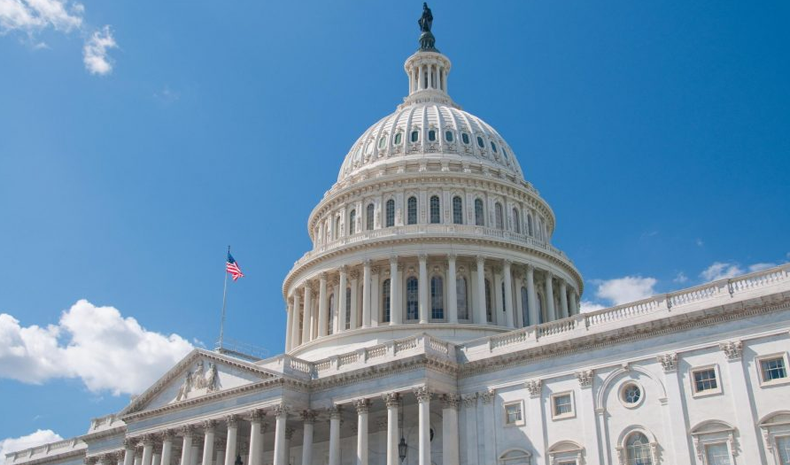 |
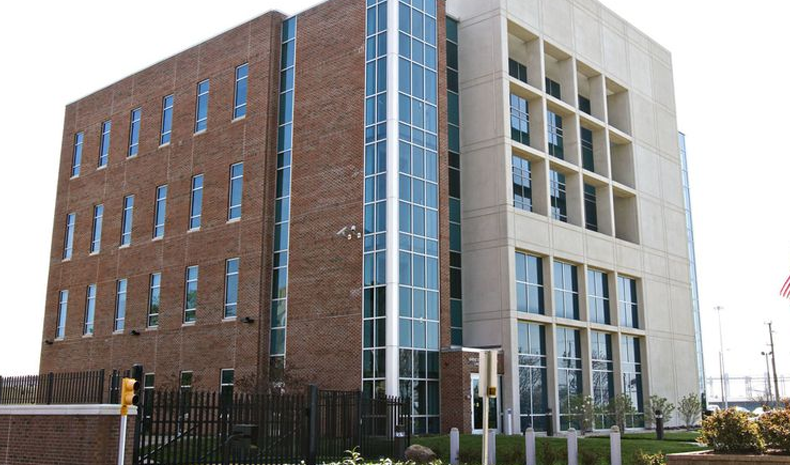 |
Key Findings
According to the poll's results:
• An overwhelming majority of Americans, more than 7 in 10 (72 percent), prefer traditional architecture for U.S. courthouses and federal office buildings.
• Preference for traditional architecture unites majorities across generations. Traditional styles are the choice of 77% of those aged 65 or older, and 68% of those aged 18-34.
• Majorities of Black (62 percent), Hispanic (65 percent), and White (75 percent) Americans prefer traditional architecture.
• Democrats (70 percent), Republicans (73 percent), and Independents (73 percent) all agree on their preference for traditional architecture.
• A preference for traditional architecture bridges regional divides: 73% prefer it in the Northeast, 73% in the South, 74% in the Midwest, and 69% in the West.
Traditional vs. Modern Buildings
The traditional buildings that Americans prefer most among those that were shown are:
• National Archives Building - 83%
• Gene Snyder U.S. Courthouse and Custom House - 81%
• William Jefferson Clinton Federal Building (EPA HQ) - 81%
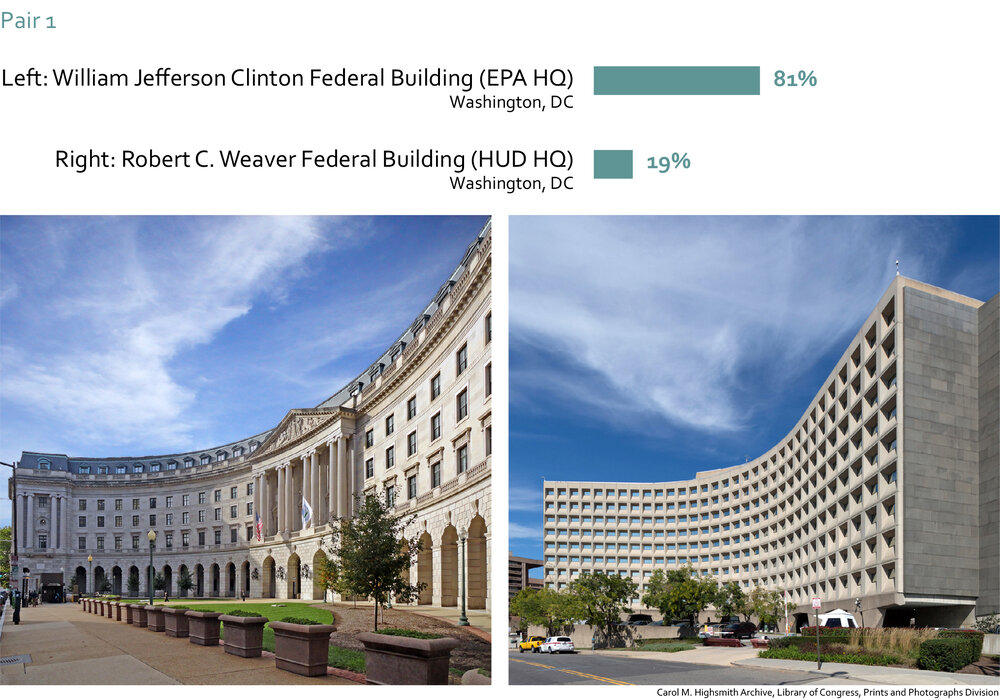
Image source: Civic Art
In contrary, the modern buildings that Americans prefer least among those shown are:
• Robert C. Weaver Federal Building (HUD HQ) - 19%
• Hubert H. Humphrey Building (HHS HQ) - 17%
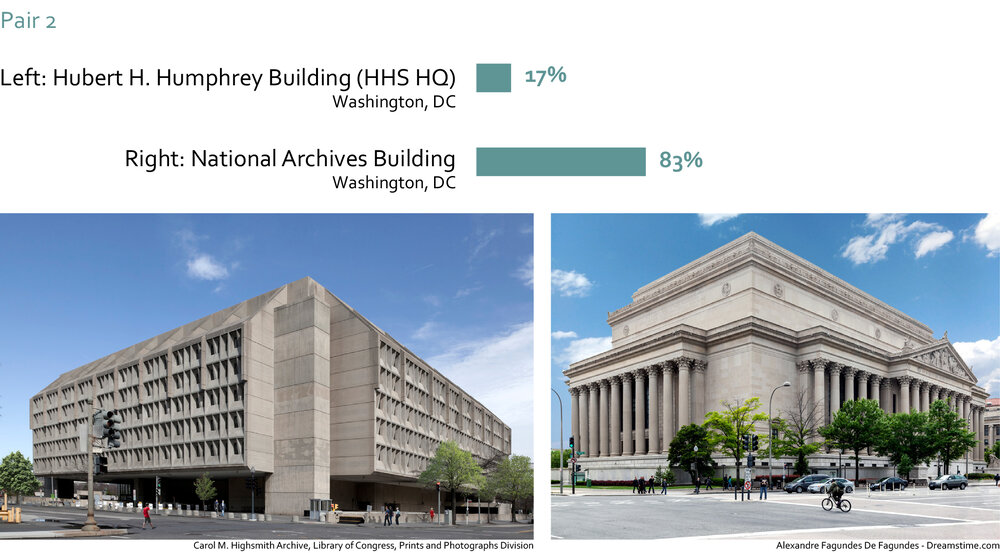
Image Source: Civic Art
While most Americans do prefer traditional, there are some that prefer modern. Nearly 3 in 10 Americans (28%) prefer a modern look for a U.S. courthouse or federal building.
The modern buildings that Americans prefer most among those shown are:
• U.S. Courthouse, Newport News - 42%
• Frank M. Scarlett Federal Building - 40%
• Hansen Federal Building - 32%
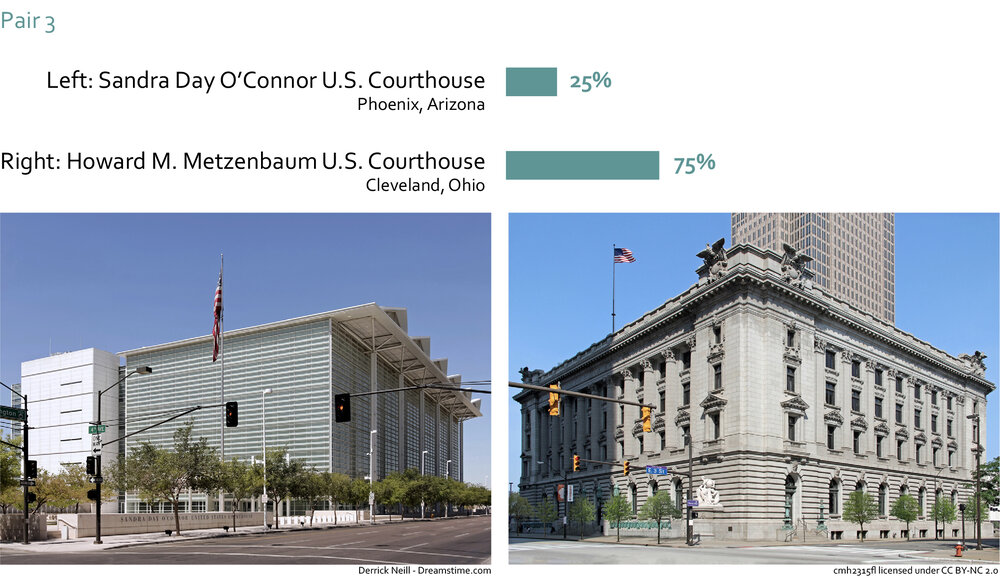
Image source: Civic Art
The responses did not vary by demographic group. When asked to choose from the two images, Americans of every age, sex, race, and class category pulled the lever for traditional designs by nearly a 3 to 1 margin. Overall, classical won out over modern by 72% to 28%.
--
Dylan Kleintop
 BIMsmith is a free cloud platform for architects, designers, and building professionals to research, select, and download building product data. Search, discover, compare, and download free Revit families on BIMsmith Market, or build complete, data-rich Revit wall, floor, ceiling, and roof systems faster with BIMsmith Forge.
BIMsmith is a free cloud platform for architects, designers, and building professionals to research, select, and download building product data. Search, discover, compare, and download free Revit families on BIMsmith Market, or build complete, data-rich Revit wall, floor, ceiling, and roof systems faster with BIMsmith Forge.


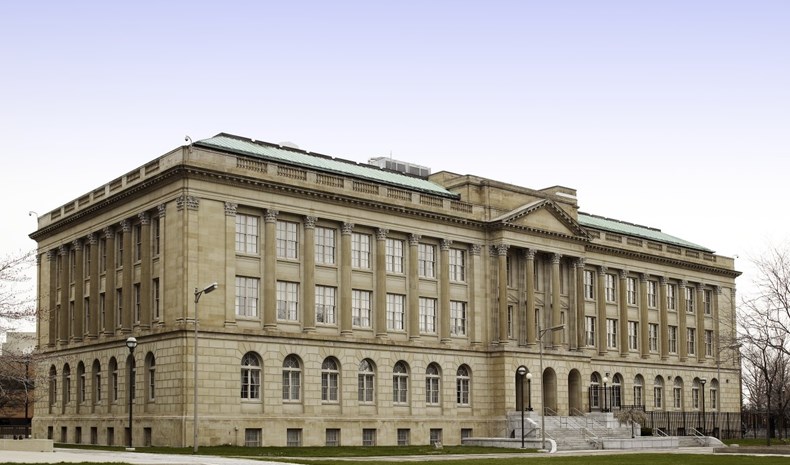

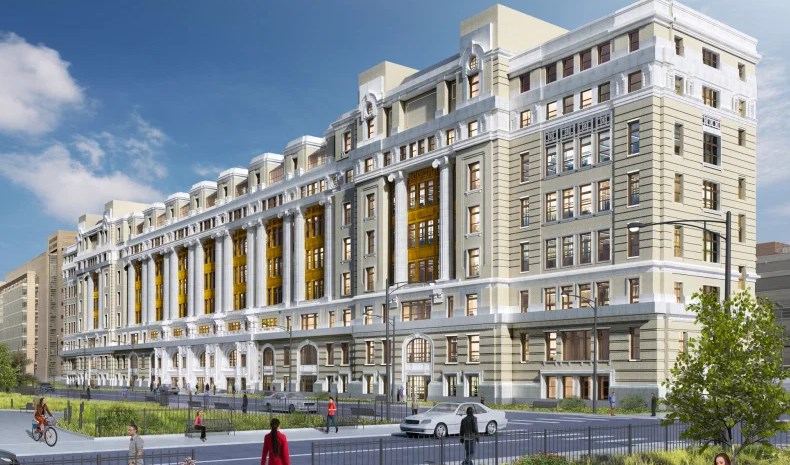

Please stop giving press to studies done by the National Civic Art Society, they are a thinly veiled conservative group and their politics are more than likely influencing the results of any study they commission.